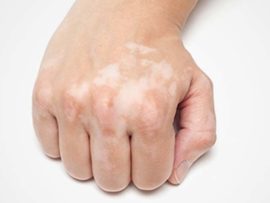
Combating Dry Skin
Our skin is the largest organ of our body. Its main function is to protect us from exposure to micro-organisms (e.g. bacteria, fungi or viruses), chemicals, and radiation. With its waterproof coating, it controls evaporation to prevent excessive water loss from the body. Coupled with the fine hairs and sweating mechanism, the skin also helps to regulate our body temperature.
With more emphasis placed on chronic medical conditions such as heart diseases, diabetes or cancer, skin medical conditions often go unnoticed. In fact, dry skin is one medical condition that is often neglected and under reported.
A majority of people who seek medical attention for skin conditions often suffer from severe dry skin and sometimes with skin inflammation, a condition better known as ‘dermatitis’. Persistent untreated dry skin can lead to skin infections. With early management of dry skin, it is possible to avoid any dry skin complications.
Management of dry skin
The basic approach towards managing dry skin includes moisturising and protecting the skin.
Moisturising the skin is typically achieved through the application of some coating to the skin. This coating helps to either reduce water loss from evaporation, or to attract water from the environment to the skin. It involves the frequent and regular use of moisturisers in the form of creams, lotions, or oils.
Moisturisers are often recommended to be applied after showers as this locks in moisture more effectively. Also, it is better to pat dry the skin with a towel after showers instead of rubbing it as vigorous rubbing may irritate the skin and weaken the skin texture.
Protecting the skin involves avoiding substances that can cause allergic reactions such as detergents or fragrances. These substances may cause our skin to react abnormally and lead to redness, itchiness, and dryness. For some, it is advisable to use hypo allergenic skin products which are more suited for sensitive skin.
Apart from this, do avoid long and hot showers as it can dry up the skin further and affect the skin’s ability to retain water. Frequent use of soaps and detergents can increase the incidences of dermatitis, and therefore should best be avoided. Sudden changes of climate or humidity can also cause dry skin as our body may take time to adapt to the change. Therefore it is highly advisable for travelers visiting cold climate areas to protect the skin by applying moisturisers when exposed to low temperatures.
Love your skin today. Don’t just clean it; moisturise and protect it as well!






